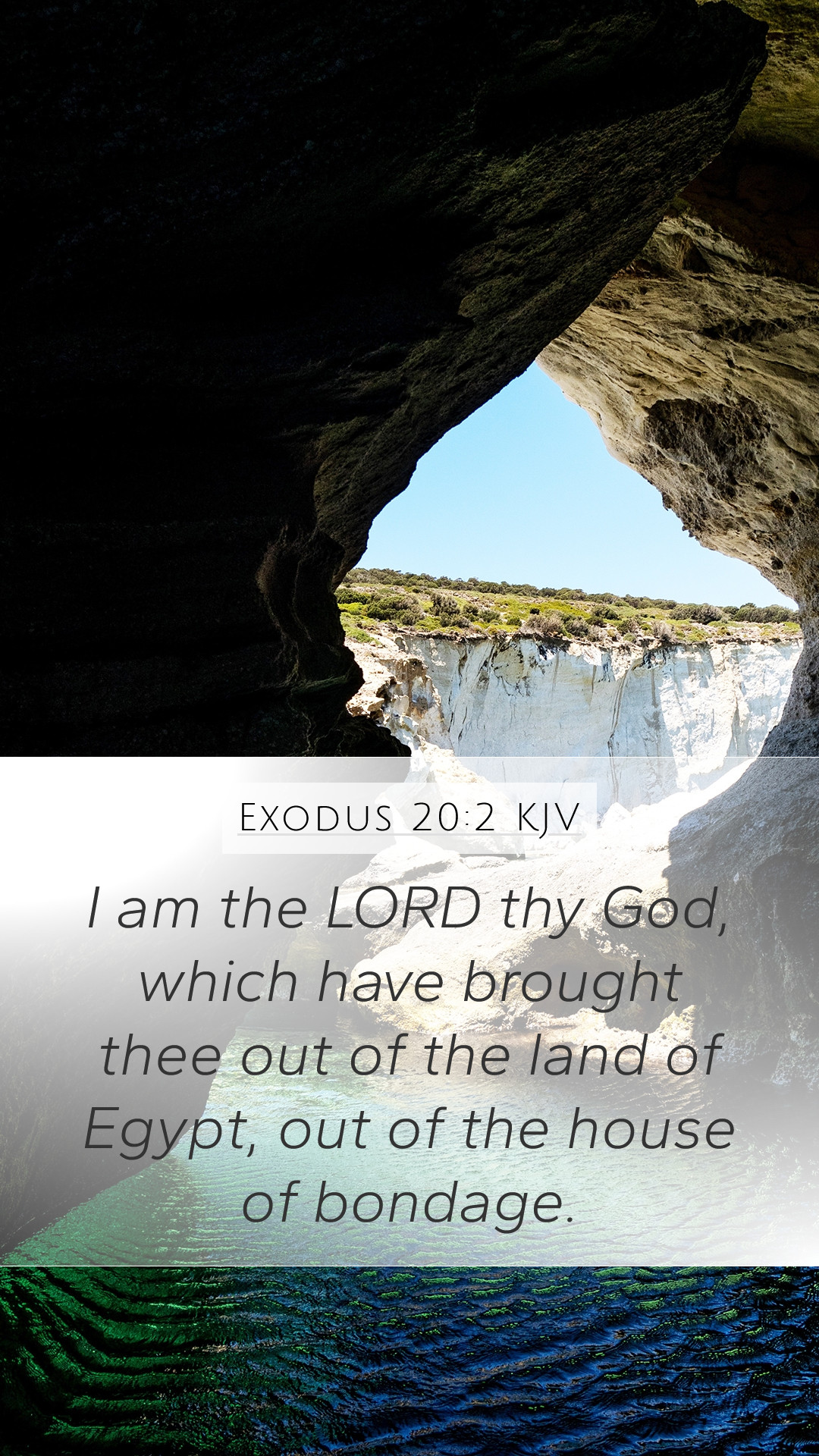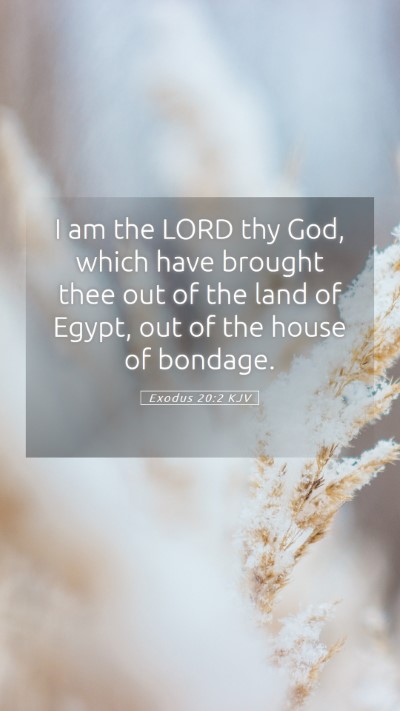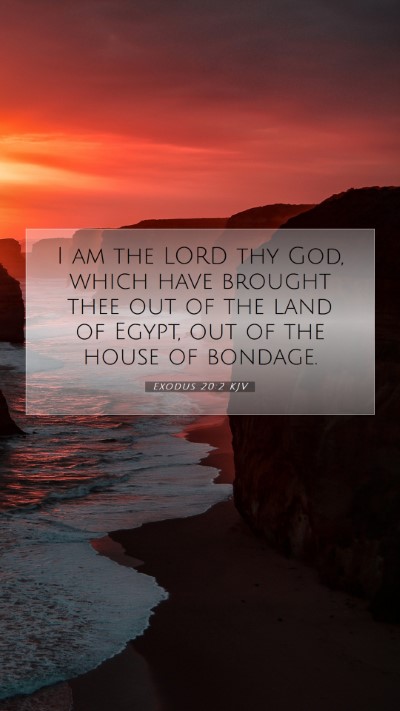Understanding Exodus 20:2
Bible Verse: "I am the LORD your God, who brought you out of Egypt, out of the land of slavery." - Exodus 20:2
Introduction to Exodus 20:2
This verse serves as a pivotal introduction to the Ten Commandments, emphasizing God's authority and His redemptive act in the history of Israel. Understanding this verse provides critical insights into biblical verse meanings and interpretations.
Meaning of Exodus 20:2
- Divine Authority: The phrase "I am the LORD your God" highlights God's sovereignty and His role as the sole deity to whom His people must adhere. It sets the foundation for the commandments that follow, emphasizing the relationship between God and Israel.
- Redemptive History: The mention of God bringing the Israelites out of Egypt serves as a reminder of the liberation from bondage and the establishment of a covenant relationship. This context is essential for understanding scripture as it ties the moral law directly to the acts of God's mercy and grace.
- Theological Implications: This verse illustrates core themes of salvation and obedience in biblical exegesis. It implies that because God has acted to save His people, they are called to respond in faithfulness to His commandments.
Insights from Public Domain Commentaries
Matthew Henry's Commentary
Matthew Henry emphasizes the importance of recognizing God's sovereignty in this verse. He notes that the declaration of God as 'LORD' signifies His eternal existence and authority, and therefore, the commandments that follow are not merely suggestions but divine instructions intended to lead His people toward holy living. Henry also points out the significance of God's act of deliverance as the motivation for obedience.
Albert Barnes' Notes
Albert Barnes elaborates on the phrase "who brought you out of Egypt" as pivotal in understanding the identity of Israel as a rescued people. He argues that this act of deliverance is foundational for Israel's moral obligations. For Barnes, this verse is God’s declaration of both identity and expectation—understanding their background in slavery enhances the meaning of the commands that follow.
Adam Clarke's Commentary
In his analysis, Adam Clarke offers insight into the historical context of the Israelites’ bondage in Egypt. He asserts that realizing God as a liberator must lead to a recognition of their commitment to Him. Clarke points out how this relationship of deliverance is the basis for the subsequent laws, describing the commandments as a way for the freed to live in accordance with God's will.
Application and Relevance
The call to understand Exodus 20:2 goes beyond mere knowledge; it is an invitation to engage in Bible study groups or online Bible study to delve deeper into its significance. Reflecting on this verse can lead to valuable Bible study insights and help individuals apply these ancient truths to their daily lives.
Cross References
- Deuteronomy 5:6: A re-statement of God's acts in Egypt.
- Isaiah 43:11: God's declaration as the savior of His people.
- 2 Corinthians 6:16: The relationship between God and His people.
Conclusion
In conclusion, Exodus 20:2 is not merely an introductory statement but a profound proclamation of identity, authority, and covenantal expectation. Engaging with this verse through Bible study tools and Bible study resources can yield transformative insights that are applicable to modern life, solidifying believers' understanding of God's enduring love and their call to faithfulness.
As you continue your exploration of Scripture, ask yourself: What does Exodus 20:2 mean for me personally? Reflecting on this question can lead to profound Bible verse explanations and a deeper connection to the text.


